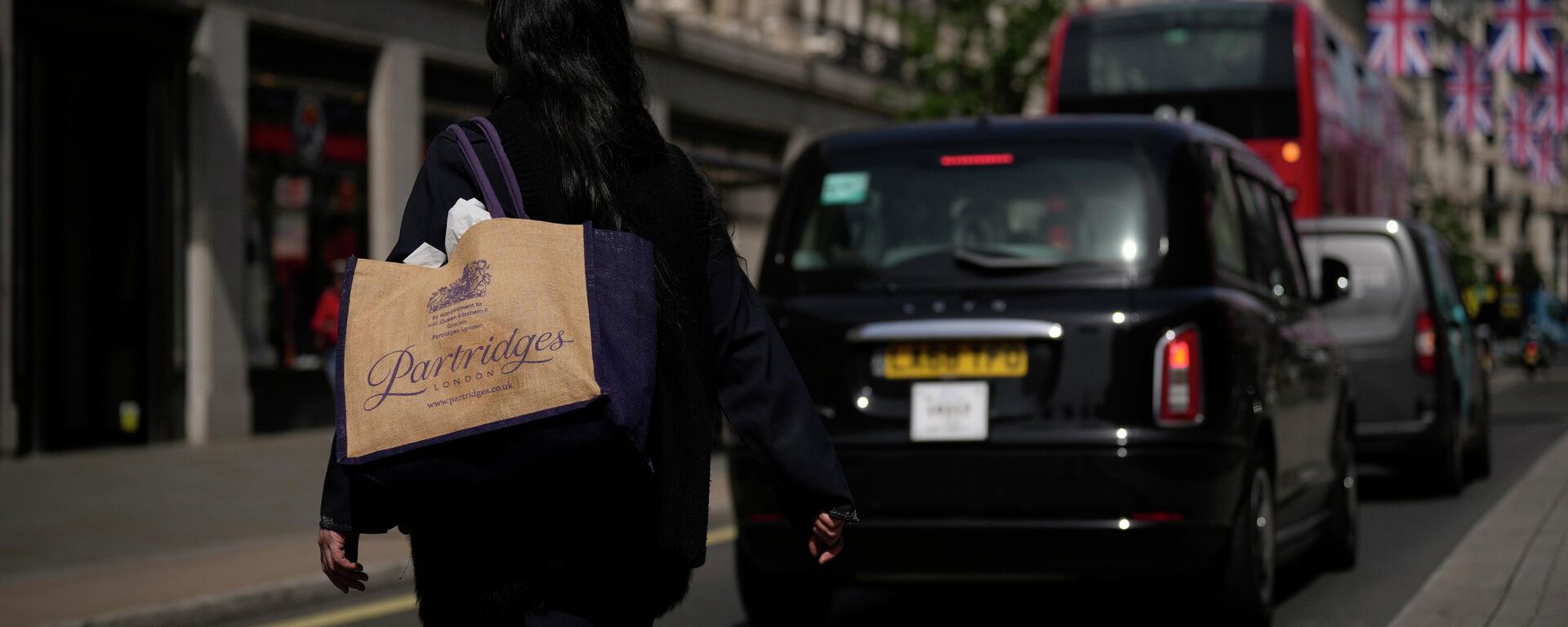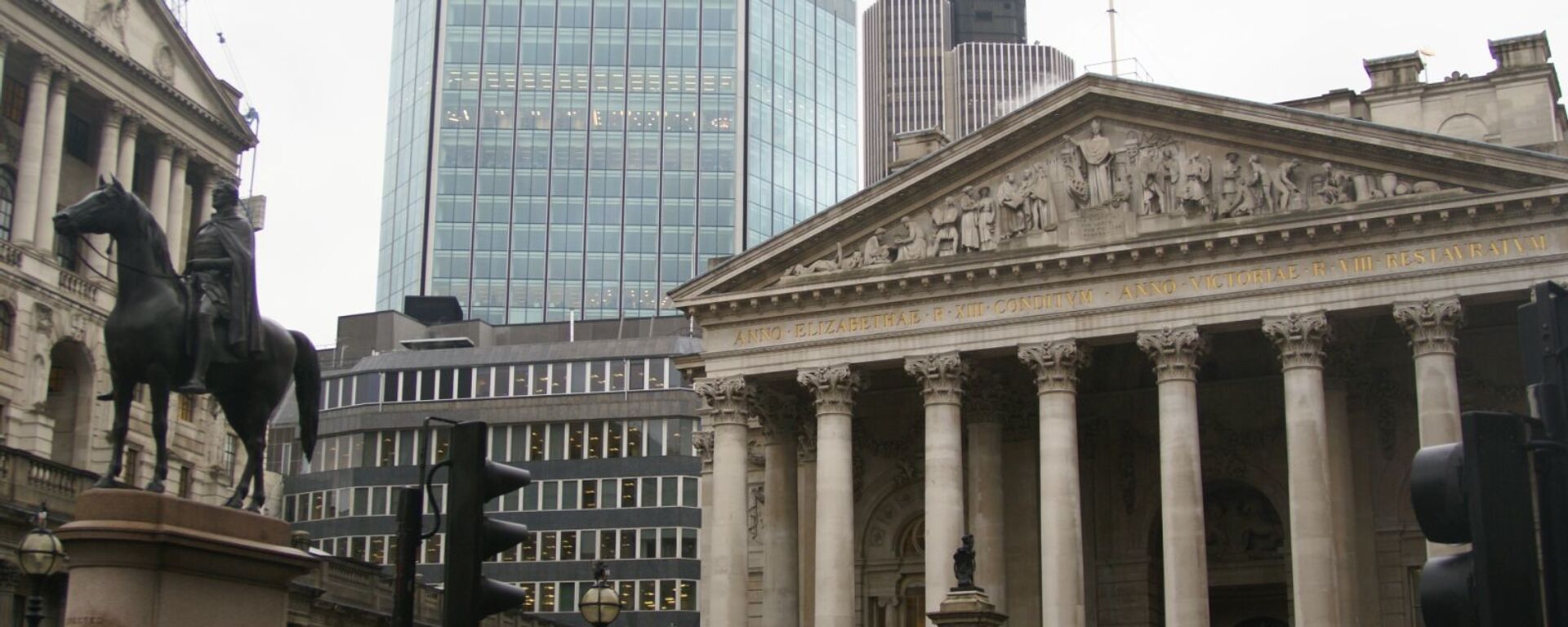Tories' Budget to Tilt Country Toward Recession, Unlikely to Win Back Trust of Voters, Experts Say
02:11 GMT 22.11.2022 (Updated: 15:25 GMT 28.05.2023)

© AP Photo / Kirsty Wigglesworth / Pedestrians pass a closed down money exchange shop on Oxford Street in London
Subscribe
MOSCOW (Sputnik) - Budget policies promised by UK Chancellor of the Exchequer Jeremy Hunt are unlikely to improve the ruling Conservative Party's economic credibility before the next general election and could push the country further into recession, experts told Sputnik.
Last week, the chancellor presented the government's medium-term financial plan to stabilize the economic situation in the country as well as eliminate the fiscal "black hole" of around 55 billion pounds ($65 billion).
The proposed measures are designed to raise taxes, which will bring an additional 25 billion pounds into the state treasury by 2027-2028. The government plans to achieve this by, among other things, reducing the minimum annual salary threshold from 150,000 pounds to 125,000 pounds for the maximum income tax rate.
Other tax rates will be frozen until 2028, while taxes on dividend income, capital gains, as well as the windfall tax for oil and gas companies will be increased. The UK authorities also decided to slow the growth of government spending to save 30 billion pounds by 2027-2028.
These measures show a marked departure from the previous Conservative cabinet led by Liz Truss, which was forced to resign due to a wave of criticism and market panic over her administration's economic plan, which included controversial tax cuts for big corporations that would have to be paid by increasing public debt.
Troubles Ahead
The new budget policies were announced amid a continuous deterioration of economic conditions, best exemplified by the Office for Budget Responsibility's forecast that living standards in the UK will fall by 7% in the next two years due to surging living costs, which will set the country back eight years in terms of economic development.
At the same time, the country's annual inflation reached 11.1% this October. In November, the Bank of England raised its interest rate by 75 basis points to 3% per annum — the largest single increase in 33 years. The regulator also said that the UK economy had entered a recession expected to last until the second half of 2024.
In his Autumn Statement delivered in the House of Commons, Hunt blamed outside factors such as fallout from the COVID-19 pandemic and its impact on supply chains, as well as the conflict in Ukraine, for driving up energy prices.
According to Patrick Diamond, professor of public policy at Queen Mary University of London, this raises the question of whether the proposed measures would be sufficient to tackle the economic crisis.
"It is hard to see how the budget measures themselves will tame inflation, since the Government itself is claiming that most inflation arises because of supply shocks created by geo-political events such as the war in Ukraine," Diamond told Sputnik.
He noted that "reducing domestic consumption and demand by raising taxes is likely to tilt the economy further towards recession, especially when accompanied by sharply rising interest rates."
The chancellor did not say much about economic growth either, while the government does not have "an ambitious agenda," the expert added.
Lost Reputation
Some have suggested Hunt's new budget may be laying a trap for the Labour Party, as the toughest budget cuts are scheduled for after the next election, thus putting Labour in a position where they supposedly have to either accept the cuts or raise taxes. Nevertheless, even if this is true, it may not do much, since the Tories' reputation is at such a low point that voters will simply not vote for them.
"It is hard to overstate how far the Conservatives have lost economic credibility in recent months, while the pain being inflicted on ordinary households is severe. Living standards will not return to pre-pandemic levels until 2028. It is hard to envisage in these circumstances that voters will really conclude they are better off with the Conservatives," Diamond explained.
Mark Garnett, senior lecturer at the department of politics, philosophy and religion at Lancaster University, said Hunt was taking steps that would complicate things for the opposition down the line, since it would be hard for Labour to present an alternative that could placate global markets.
"The Conservatives have lost their reputation for economic competence, and it is difficult to see how this might be regained before the next general election. If, as most observers expect, Labour wins that contest, it will be able to blame the Conservatives for the continued economic misery, at least for a couple of years," Garnett stated.
The Tories are also arguably more divided than ever since the Brexit referendum, according to the expert. He noted hardcore proponents of leaving the EU agreed that it would undermine the country's economic position, but the situation was exacerbated beyond expectation by the pandemic and subsequent inflation.
"The government of Liz Truss acted as if Britain could escape from the prospect of low economic growth by acting on one of 'Brexit's' key claims — that the country was strong enough without the EU to assert its 'sovereignty', regardless of the reaction of global markets. That claim has proved to be unfounded, and less radical Conservatives have been forced to stabilise the situation by reversing Truss's policy," Garnett continued.
This, however, raised suspicions among ardent Brexit supporters that Prime Minister Rishi Sunak and Hunt are less optimistic about the country's future outside the EU.
"Ultimately, the fault-line in the Conservative Party concerns very different estimations about Britain's role in the world, and such disagreements are particularly toxic because they arise from emotion rather than reason," the expert concluded.





